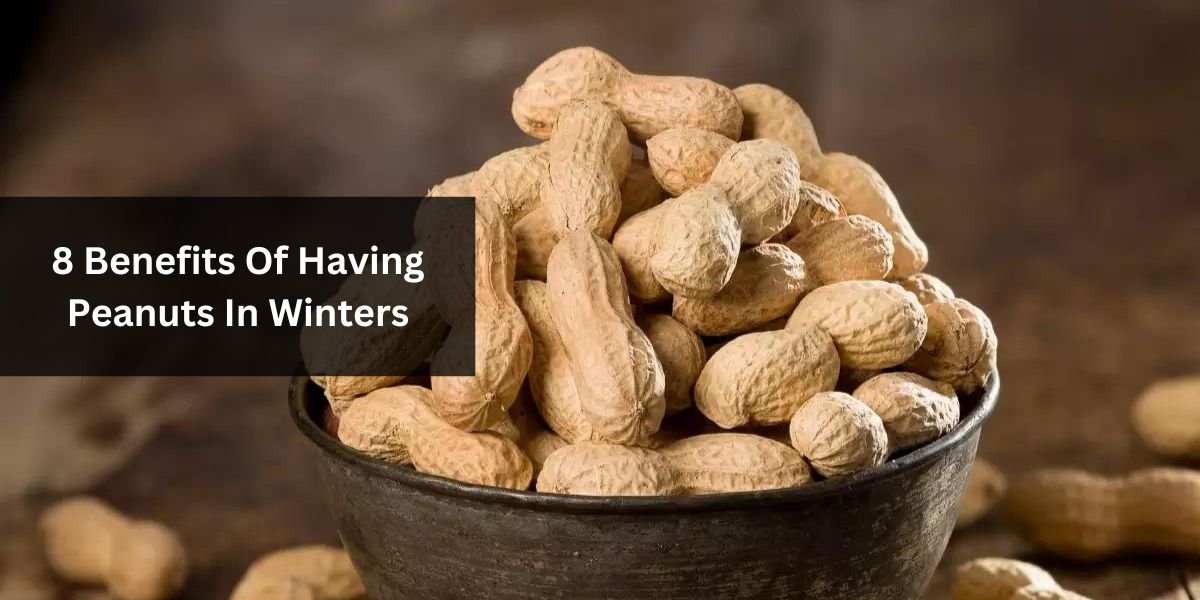Winter brings a chill in the air, and with it, the need to nourish our bodies with foods that not only warm us up but also provide essential nutrients. One such underrated winter delight is peanuts. Beyond being a crunchy snack, peanuts pack a nutritional punch that can boost your health during the colder months. In this article, we’ll explore eight compelling benefits of incorporating peanuts into your winter diet.
The Power of Peanuts in Winter Nutrition
1. Immune System Boost
The winter season often comes with an increased risk of colds and flu. Peanuts, rich in immune-boosting nutrients like zinc and vitamin E, can play a crucial role in strengthening your body’s defense mechanisms. Regular consumption may help ward off winter illnesses and keep you feeling your best.
2. Energy-Boosting Snack
Feeling sluggish during winter afternoons? Peanuts are an excellent source of protein, healthy fats, and fiber, making them a perfect energy-boosting snack. Whether you’re at work or home, a handful of peanuts can provide sustained energy, keeping you fueled throughout the day.
3. Warmth from Within
Peanuts have a natural warming effect on the body, making them an ideal choice for chilly winter days. The healthy fats in peanuts help regulate body temperature and keep you warm from the inside out. Snacking on peanuts can be a cozy and nutritious way to combat the winter chill.
4. Mood-Enhancing Properties
Winter blues getting you down? Peanuts contain tryptophan, an amino acid that plays a role in the production of serotonin—a neurotransmitter that contributes to mood regulation. Including peanuts in your winter diet may help elevate your mood and keep seasonal affective disorder at bay.
5. Skin Hydration
The cold winter air can be harsh on the skin, leading to dryness and irritation. Peanuts are a good source of vitamin E, an antioxidant that promotes skin health by preventing moisture loss. Adding peanuts to your diet may contribute to a radiant and hydrated complexion during the winter months.
6. Weight Management
Contrary to common belief, peanuts can be a valuable ally in maintaining a healthy weight. The combination of protein and fiber in peanuts promotes a feeling of fullness, reducing the likelihood of overeating. This can be especially beneficial during the holiday season when indulgent treats are abundant.
7. Heart Health Support
Winter is a critical time to prioritize heart health. Peanuts, packed with monounsaturated and polyunsaturated fats, can help lower bad cholesterol levels. Including peanuts in your winter diet may contribute to cardiovascular health and reduce the risk of heart-related issues.
8. Nutrient-Rich Comfort Food
In the quest for comforting winter foods, peanuts stand out as a nutrient-rich option. They contain essential vitamins and minerals, including folate, magnesium, and phosphorus, providing a wholesome alternative to traditional comfort snacks that may lack nutritional value.
Conclusion
As you navigate through the winter months, consider the numerous benefits of including peanuts in your diet. From immune system support to skin hydration and mood enhancement, peanuts offer a diverse range of advantages that make them a valuable addition to your winter nutrition. Embrace the warmth and goodness that peanuts bring, and savor the season with a nutritious twist.
FAQs – Unveiling the Nutritional Secrets of Peanuts:
1. Can peanuts be consumed by individuals with nut allergies?
While peanuts belong to the legume family, they are not true nuts. However, individuals with peanut allergies should exercise caution and consult with a healthcare professional before including peanuts in their diet.
2. Are roasted peanuts as nutritious as raw peanuts?
Roasting peanuts can alter their nutritional content slightly, but the impact is minimal. Both raw and roasted peanuts offer health benefits, so choose the preparation method that suits your taste preferences.
3. How many peanuts should one consume daily to reap their health benefits?
A moderate intake of peanuts, such as a small handful (approximately 1 ounce) per day, can provide the desired health benefits without excessive caloric intake.
4. Can peanut consumption lead to weight gain?
When consumed in moderation, peanuts can be a part of a balanced diet and may even support weight management due to their satiating protein and fiber content. However, excessive consumption may contribute to weight gain.
